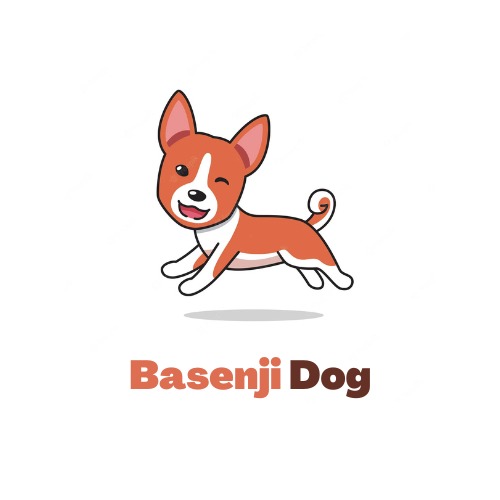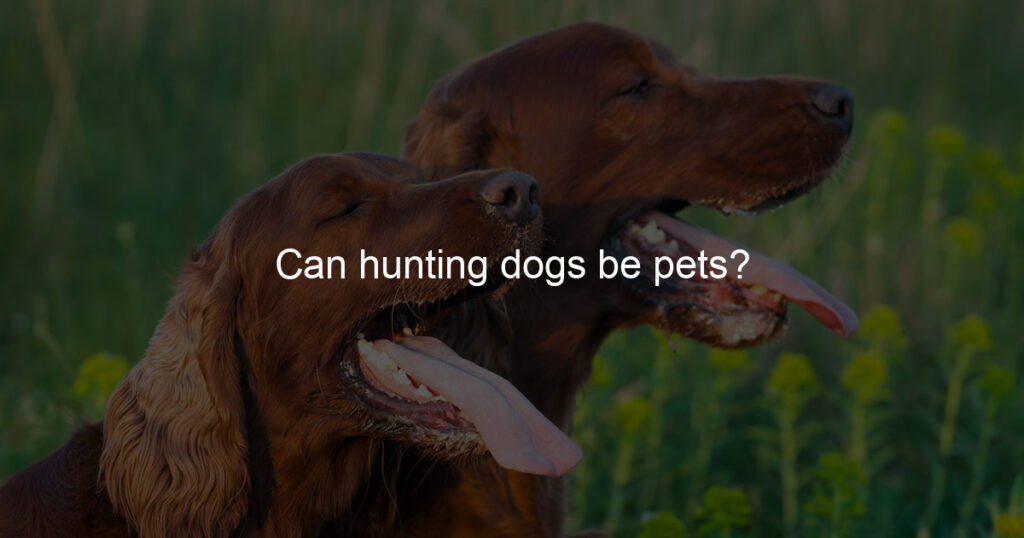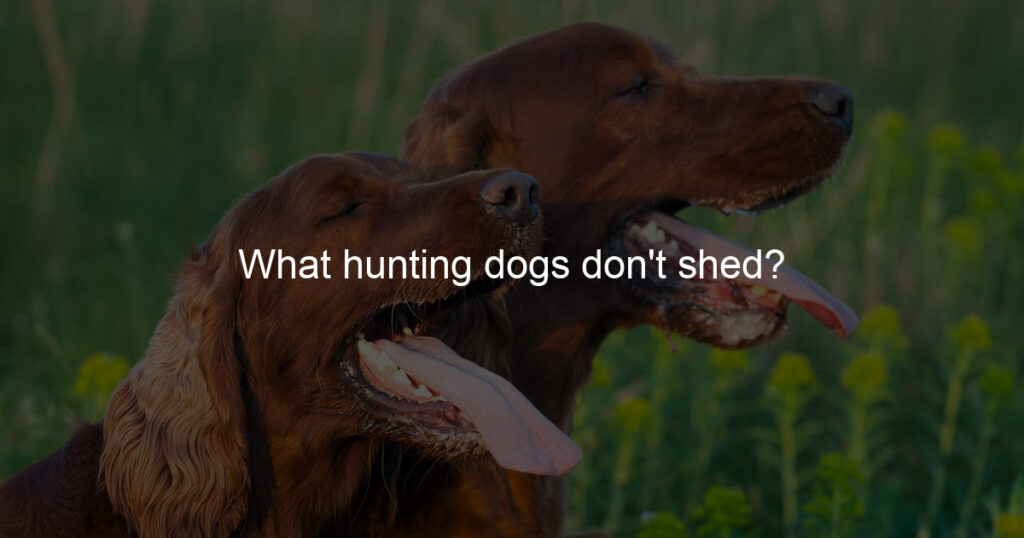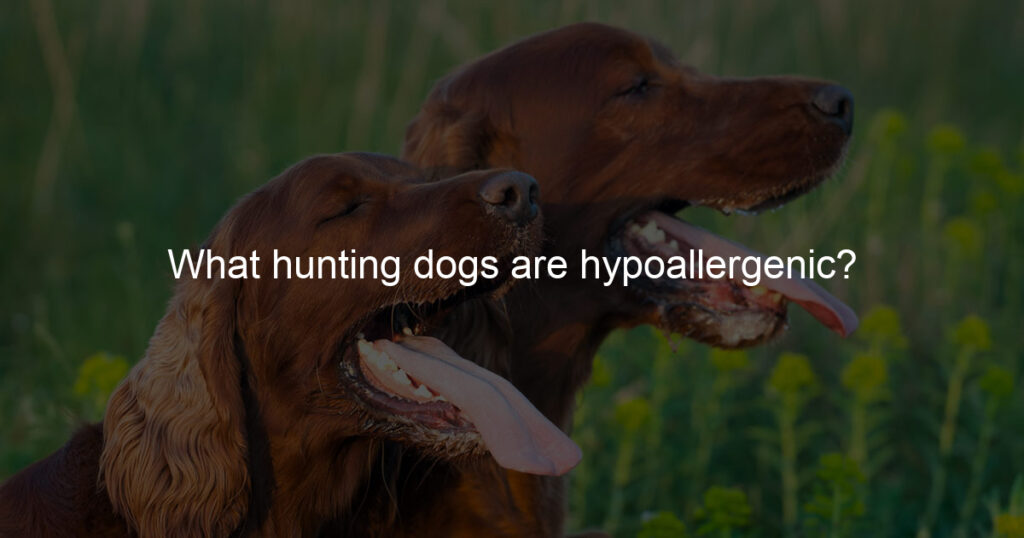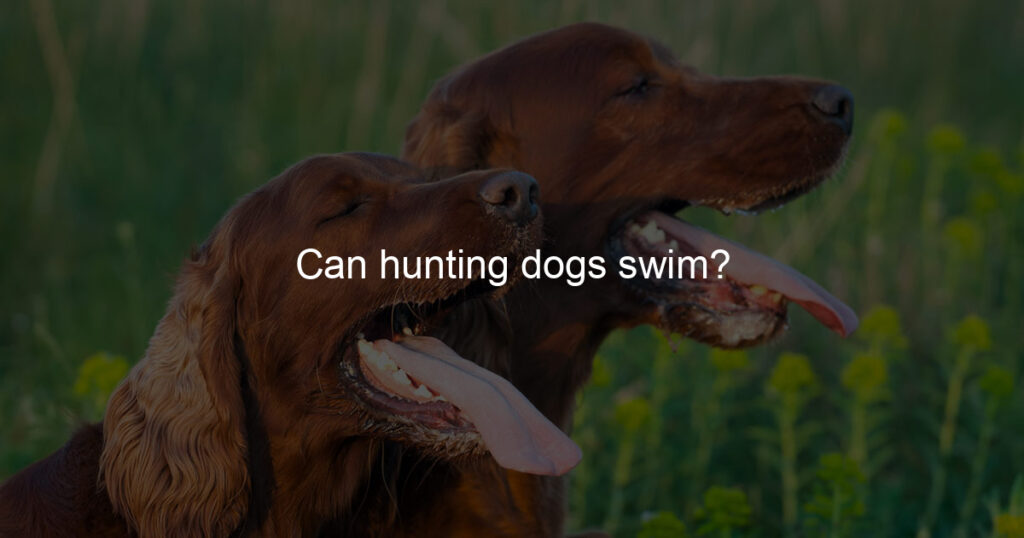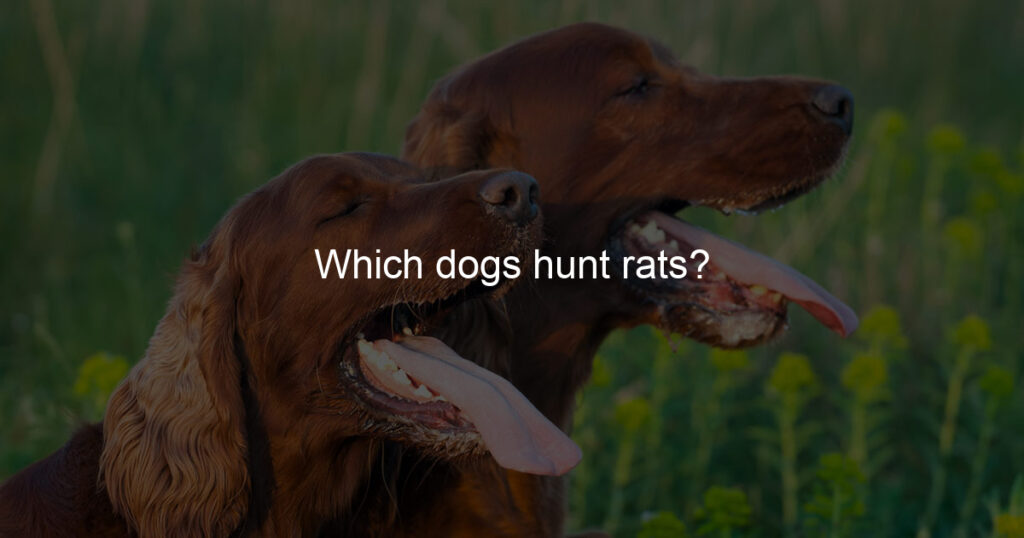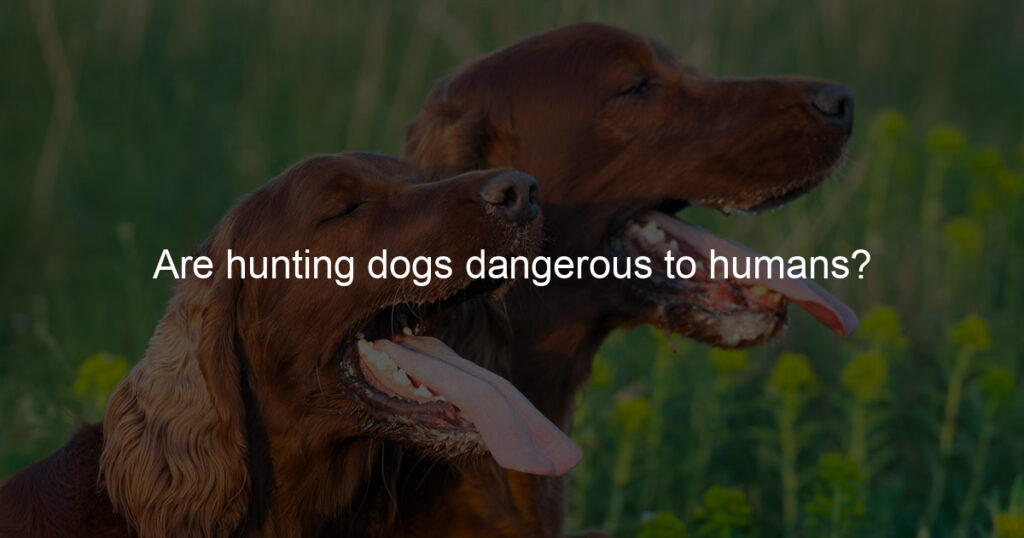Do you have a hunting dog who regularly participates in your outdoor activities? If so, you might already be familiar with the concept of exercise-induced HRI (hyper resonant inspiration).
This respiratory condition can affect many breeds, especially those used for active sports like gunning, hunting, and running—but it’s important to understand that there are ways to help manage it. In this blog post, we’ll explore the signs and symptoms of exercise-induced HRI as well as some tips on how to keep your pup safe when they experience them. So let’s get started!
What happens if you don’t exercise your dog?
Not exercising your dog can have serious consequences on both their physical and mental health. A lack of exercise can lead to boredom, listlessness, and even behavior problems that you may find hard to manage. Physically, their muscles will become weak and they’re more prone to injury.
Additionally, not only do dogs need the regular chance to run but they also need variety in the type of exercises they do—swimming, frisbee or fetch are just some examples. So before you leave your pup feeling cooped up at home remember to get outdoors for regular playtime and exercise.
How do you activate a dog in the hunter?
Activating a dog in the hunter is an exciting process that demands patience from both the trainer and the pup. When you introduce your dog to a new hunting environment, it’s important to give them time to become comfortable — this is when positive reinforcement comes into play. By rewarding good behaviors during training sessions and hunts, you help create a dog with an eagerness to perform its best.
A great tip is to make sure your pup knows the reward they get at the end of a successful hunt, that way they remember how rewarding following commands can be. With patience, consistency, and love, soon enough you’ll have an activated hunting partner who loves performing as much as they love being rewarded!
How do dogs survive in the wild?
Surviving in the wild is no easy feat for any species – this includes our beloved dogs. Since domesticated canines originate from their wild wolf ancestors, they have evolved to gain many of the same skills that help wolves thrive in the great outdoors. This typically involves sharp senses, such as sight, hearing, and smell to detect prey, as well as agility and endurance when chasing it down.
Dogs are also very resourceful; they use the resources around them to help build homes with tunnels or even create makeshift beds out of leaves or sticks. Plus, their sense of loyalty allows them to form packs with other members of their species for better protection and a higher chance of finding food. All these attributes allow dogs to survive the chaos of nature by giving them the strength and smarts needed to obtain food and shelter – all while happily wagging their tails!
How do you deal with a dog with high prey drive?
A dog with high prey drive can be incredibly difficult to deal with, but it’s not impossible. The first step to managing a dog with a high prey drive is to make sure that you are confident and firm in your commands. Don’t underestimate the power of positive reinforcement! You can also use voice commands, leashes, and muzzles if need be.
Another way to help minimize the effects of prey drive is to give your pup plenty of physical and mental stimulation. Toys like puzzle-based items can provide interactive fun with reward-based returns if done correctly.
Finally, always pay attention when walking around the neighborhood – it is key to monitoring your pup’s surroundings so you can begin training early if necessary. With these strategies in mind, you’ll be able to give your pooch all the tools they need for successful living alongside their strong hunter instincts.
How do I know if my dog has a high prey drive?
If you want to know if your dog has a high prey drive, watch for certain tell-tale behaviors. Does your pup seem overly excited when they spot smaller animals like cats or squirrels? Do they often run after birds in the yard? Does their behavior around other animals often seem overly aggressive or dominant?
Is your furry friend much more interested in chasing after things and doesn’t respond well to commands when there is a distraction? These are some signs that your pooch may have a higher-than-average interest in pursuing and catching prey. If this is the case, it’s best to work with a professional trainer to help redirect this instinctual behavior to something more appropriate.
Why do dogs whine when hunting?
During hunting, whining is a type of communication that dogs use to indicate their location and let their owners know they’ve found something. They may also whine as a plea for assistance or reinforce certain behaviors. Their whines might get more urgent and louder as they become excited by the hunt, whether it’s walking along a path or waterfowl flying.
Sometimes dogs are so worked up that they can’t help but vocalize with their whines, which let the hunter know if he’s got to move faster or if the hunt is going well. In any case, this common behavior has been essential for centuries in helping hunters complete successful hunts.
What is the hunting behavior of dogs?
Dogs have been used for hunting since ancient times, and throughout history, they’ve developed a keen instinct for identifying and pursuing prey. Depending on the breed, dogs engage in different types of hunting styles, such as flushing out prey with their presence or actively chasing and cornering quarry.
While modern breeds are more likely to be kept as pets these days, certain types of hounds are still trained to hunt various kinds of animals, from rabbits and raccoons to deer and foxes. Hunting dogs have been proven time and time again as incredibly effective working partners during a hunt, as their heightened senses allow them to sniff out desperate animals or flush them out of hiding.
Not just a valuable asset, our beloved pets also love having the opportunity to explore their innate nature – the need to track down what they see as prey!
How do you calm a hunting dog?
If you own a hunting dog, there will likely come a time when it needs to be calmed down. This can easily be done by taking the dog for a walk or jogging before the hunt so they can get rid of some of their extra energy. Then, during the hunt, using your voice in a low, confident tone and giving out positive reinforcement whenever they do something right will help them stay more focused on the task.
Keeping distractions away is important – loud noises or someone running around won’t help keep them calm! Even if progress is slow, staying patient and understanding with your pup will go a long way during a hunt or any other training session.
What happens if you don’t exercise your dog?
Without regular exercise, dogs can experience a wide range of damaging effects on their physical and psychological health. Failing to provide routine walks and playtime sessions can result in a loss of muscle tone and an increased risk of obesity. Being cooped up at home all the time can also lead to feelings of listlessness or boredom which, in turn, could spur problem behaviors like whining, barking excessively, or even destructive chewing.
In addition, skipping out on exercise can leave your dog feeling mopey for extended periods, robbing you of more precious moments together outdoors – taking in the scenery, chasing birds or other animals, exploring trails, and simply having fun! Simply put: getting outdoors with your pup should be high on the priority list for any responsible pet owner.
Conclusion
While there is still much to be learned about exercise-induced HRI in hunting dogs, the available research suggests that it’s a very real issue. To ensure your beloved hunting dog keeps doing its best on the hunt, make sure to provide regular consistency in their exercise routine, pay attention to their diet, and watch for any signs of exhaustion or injury.
If you suspect that your dog is developing an exercise-induced HRI problem, it may be time to call in a vet to assess their condition and give them the help they need. No one wants to have an exhausted pup not performing up to par when it comes time for a big game hunt. Taking proactive steps and being vigilant can go a long way toward ensuring your furry friend continues providing hours of entertainment in and out of hunting season!
